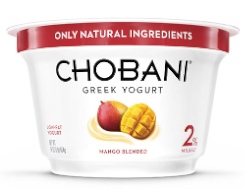A 2013 recall of Chobani yogurt has federal and state authorities squaring off over who knew what when. The he said/she debate between the U.S. Food and Drug Administration (FDA) and the Idaho State Department of Agriculture (ISDA) was touched off by a recent news report about the recall based on Freedom of Information Act (FOIA) request obtained by Times-News.
 Chobani Inc. is based in Twin Falls, Idaho. In September 2013, the company issued a recall for all of its Greek Yogurt products “due to reports of product bloating and swelling and some claims of illness.” The company temporarily ceased production of the product as it sought to solve the problem which turned out to be a mold, called Mucor circinelloides, that causes dairy products to spoil but does not pose a health risk for most people.
Chobani Inc. is based in Twin Falls, Idaho. In September 2013, the company issued a recall for all of its Greek Yogurt products “due to reports of product bloating and swelling and some claims of illness.” The company temporarily ceased production of the product as it sought to solve the problem which turned out to be a mold, called Mucor circinelloides, that causes dairy products to spoil but does not pose a health risk for most people.
In the weeks following the recall, complaints about the product poured into the FDA. Customers complained their yogurt tubs were bloated, hissing or exploding. At least 300 people claimed they got sick after eating the yogurt. The FDA did not substantiate the claims.
This week, the Times-News published a story, citing an FDA report stating that Idaho agriculture inspectors spotted moldy Chobani yogurt during a routine inspection of the company’s facilities months before the product was recalled. But Pamela Juker, an ISDA spokeswoman, told the paper that wasn’t true and she is not sure why that would be in an FDA report.
“All of the raw and finished product-testing results met the requirements of the Pasteurized Milk Ordinance,” Juker told the paper. “All of the tests we’ve done met the requirements.”
At this point, it’s probably worth mentioning that even if ISDA saw problems months before the company actually issued a recall, it wouldn’t be the first time that there was a lag in alerting the public to a food safety problem. There are lots of examples in the posts on this site. For example, the Foster Farms Salmonella Outbreak of 2013.
On July 25 2013, officials from the U.S. Department of Agriculture notified Foster Farms of a Salmonella outbreak associated with their chicken. The outbreak was not announced by the Centers for Disease Control and Prevention (CDC) to the public until October 8. At that point, 317 people in 20 states and Puerto Rico had been sickened.





The Chobani yogurt tasted bad around that time, even without obvious signs of mold or spoilage. I threw out several containers of it, and switched to a different brand of Greek yogurt that tasted just fine. Never went back to Chobani, and I never will. I don’t think the company can be trusted to do the right thing by consumers, if they sold the yogurt knowing that it was moldy. That is a rotten thing to do to people who may have trusted their products.